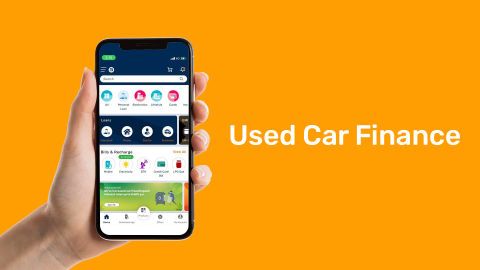Owning a car is a significant financial commitment, often necessitating the use of a car loan. While the joy of driving a new or pre-owned vehicle is undeniable, the responsibility of managing a car loan demands attention. One crucial aspect that should never be overlooked is the regular tracking of your car loan balance amount.
7 reasons why it is important to track car loan balance
Financial awareness: Keeping tabs on your car loan balance is not just about numbers; it is about financial awareness. Understanding how much you owe at any given time allows you to maintain a comprehensive view of your overall financial health. This awareness is fundamental for effective financial planning and budgeting.
Timely payments: A primary reason for monitoring your car loan balance is to ensure timely payments. Missing a payment can lead to late fees and negatively impact your credit score. By regularly tracking your balance, you can plan and allocate funds, accordingly, avoiding the pitfalls of late or missed payments.
Interest management: Car loans come with interest, and the more you owe, the more interest accrues. Tracking your balance allows you to calculate the interest on the outstanding amount. Armed with this knowledge, you can strategise to make additional payments, reducing the overall interest burden over the life of the loan.
Credit score maintenance: Your credit score is closely tied to your ability to manage debt responsibly. Timely payments on your car loan positively contribute to your credit history. Regularly checking your balance ensures that you are on top of your payment schedule, safeguarding your credit score and enhancing your financial credibility.
Early repayment opportunities: Knowing your car loan balance presents opportunities for early repayment. If you have surplus funds, you can consider paying off a portion or the entire remaining balance before the loan term ends. This not only saves you money on future interest payments but also provides financial freedom sooner.
Prevention of default: Regular monitoring helps identify discrepancies or errors in your loan statements. Addressing such issues promptly is crucial in preventing misunderstandings that could lead to default on the loan. Being proactive in this manner safeguards your financial standing.
Loan closure planning: Being aware of your car loan balance allows you to plan for the closure of the loan. You can set financial goals to pay off the remaining balance ahead of schedule. This will provide you with financial freedom and reduce the overall cost of the loan.
Bajaj Finance provides two types of car loans: one for used cars and the other for new car purchases. The used car loans cater to those seeking funds for buying pre-owned vehicles, while the new car finance option provides funds for the purchase of brand-new cars. You have the flexibility to choose the loan product that aligns best with your specific requirements.
Additional Read: How to calculate car loan EMI amount
Different ways to check car loan balance
Using the lender’s mobile app
Many lenders offer a dedicated mobile app, which provides easy access to your loan balance, EMI details, and payment history. After logging in with your credentials, navigate to the loan section to view the balance and any related information in real-time.
Through net banking portal
If your lender has an online banking facility, you can check your car loan balance through the net banking portal. Log in to your online account, select the loan section, and access the loan balance, upcoming EMIs, interest rate, and payment schedule.
Checking via SMS service
Some banks and financial institutions offer SMS banking services for quick updates on loan balances. By sending a specific keyword, such as “LOAN BAL” along with your loan account number to a designated number, you can receive instant updates on your car loan balance and payment due dates.
Using customer service helpline
Contacting the lender’s customer service helpline allows you to get accurate details on your car loan balance. After verifying your identity, the representative can provide the balance and any additional information, such as upcoming EMI schedules and payment methods.
Visiting the lender’s branch
For a more traditional approach, you can visit the nearest branch of your lending institution to inquire about your loan balance. At the branch, you may be required to provide your loan account details and identification for security reasons before they provide the loan balance.
Emailing customer support
You can also email the lender’s customer support team with your loan account information and a balance inquiry request. Generally, lenders respond within 24-48 hours with the current balance, EMI schedule, and any associated fees.
Using Bajaj Finserv app (if applicable)
For customers with Bajaj Finserv, the app provides a seamless way to check your car loan balance and view additional account details. After logging in, select the loan section to view balance, EMI history, and other loan-related information.
How to check car loan balance at Bajaj portal?
If you have opted for any of our car loans, you can view your ongoing loan details by visiting our customer portal. You can check your car loan balance amount, car loan EMI due date, and other details by signing-in to our customer portal. Follow these simple steps to check your car loan balance.
- Go to our customer portal on the website.
- Enter your registered mobile number and the OTP to sign-in.
- Verify your details by entering your date of birth and proceed.
- Select the loan account for which you want to view details.
Alternatively, you can check your ongoing car loan balance by downloading our app.
In conclusion, tracking your car loan balance is not merely a financial chore; it is a proactive approach to financial management. It empowers you to make informed decisions, avoid financial pitfalls, and work towards achieving your broader financial objectives. By staying vigilant and engaged with your car loan balance, you are taking a crucial step towards a more secure and financially sound future.



